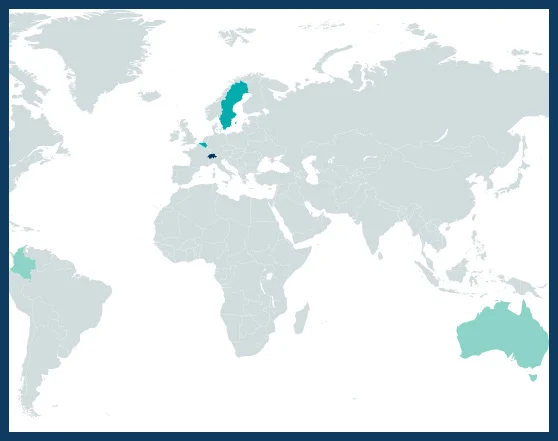01/04/2021 – 31/03/2024
€ 1,050,904
Prof. Dr. Rachael Garrett
rgarrett@ethz.ch
Coordinator: Silviculture – University of Natural Resources and Life Sciences – Vienna – Austria
Health and Bioresources – Austrian Institute of Technology – Tulln – Austria
Forest Conservation – Forest Research Institute of Baden-Württemberg – Freiburg – Germany
Forest Genetics and Plant Breeding – Aristotle University of Thessaloniki – Thessaloniki
– Greece
Biodiversity and Conservation Biology – Swiss Federal Institute WSL – Birmensdorf – Switzerland
Plant Genetics – Middle East Technical University – Çankaya, Ankara – Turkey
National Botanical Garden of Turkey / TAGEM – Çankaya, Ankara – Turkey

The conversion and degradation of tropical forests have multiple negative socio- environmental impacts. Conversely, their restoration, including enhancing tree cover on already cleared farmland, is a powerful nature-based solution to climate mitigation and adaptation, with potentially large biodiversity and rural livelihood co-benefits. A major driver of forest loss and degradation in the tropics is the production and trade of food commodities and associated land management practices, with cocoa being the leading forest-risk commodity in West Africa. Yet, cocoa production in agroforestry systems harbours the potential to partially restore biodiversity in key hotspots. Acknowledging these challenges and opportunities, ending deforestation and encouraging agroforestry has become a high priority in cocoa supply chains as part of interventions such as the Cocoa and Forests Initiative.
In the proposed research SUSTAIN-COCOA aims to investigate the conditions under which supply chain sustainability initiatives (SSIs) can lead to reduced deforestation and increased shade-tree cover in cocoa production systems and, in turn, a triple-win of increased biodiversity, climate change mitigation, and livelihood resilience. To meet this aim, six sub-objectives are integrated:
1. Developpe and synthesise datasets of cocoa supply chains, SSI attributes and coverage, and current extent of cocoa agroforestry;
2.Quantify the impacts of shade-tree cover on farm-level biodiversity, carbon storage, food production, farm and household income, and climate resilience;
3.Identify the drivers and impacts of SSIs on shade-tree cover, deforestation, and biodiversity in cocoa producing landscapes;
4.Estimate the potential carbon and biodiversity benefits of shade-tree adoption at regional scales;
5. Assess the overlap between SSI benefits and company motivations for adoption;
6.Deliver recommendations for how to improve the design, uptake, and implementation of SSIs in cocoa producing landscapes to promote biodiversity, climate, and livelihood synergies.
To achieve these objectives, SUSTAIN-COCOA integrates (agro)-ecological fieldwork in cocoa agroecosystems, household and supply chain interviews, supply chain and land cover mapping, regional modeling, and stakeholder workshops. The cross-scale, interdisciplinary, and transnational approach will provide insights into the on-the-ground impacts of existing SSIs in the cocoa sector and the potential impacts of scaling up SSIs to reduce deforestation and enhance shade-tree cover. Furthermore, the role that agroforestry can play in helping deliver multiple sustainability objectives will be clarified: protecting biodiversity, climate mitigation, and improved farmer livelihoods. The project thus aligns well with the EU’s efforts to step up action to protect and restore the world’s forests. The engagement strategy enables stakeholders (including chocolate companies, federal ministries, farmers groups, and environmental and social NGOs) to inform the project from design to implementation. In the first year of the study SUSTAIN- COCA will hold a virtual workshop or meetings to gather more feedback on the research design and solidify fieldwork locations. Virtual meetings in year two and an in-person workshop to share and discuss results in year 3 will also be held.